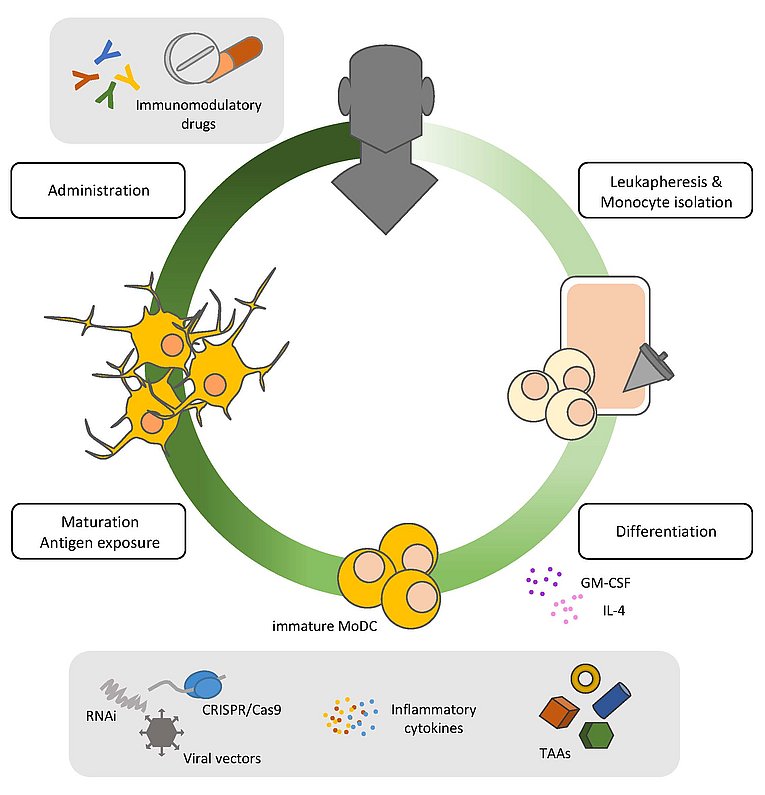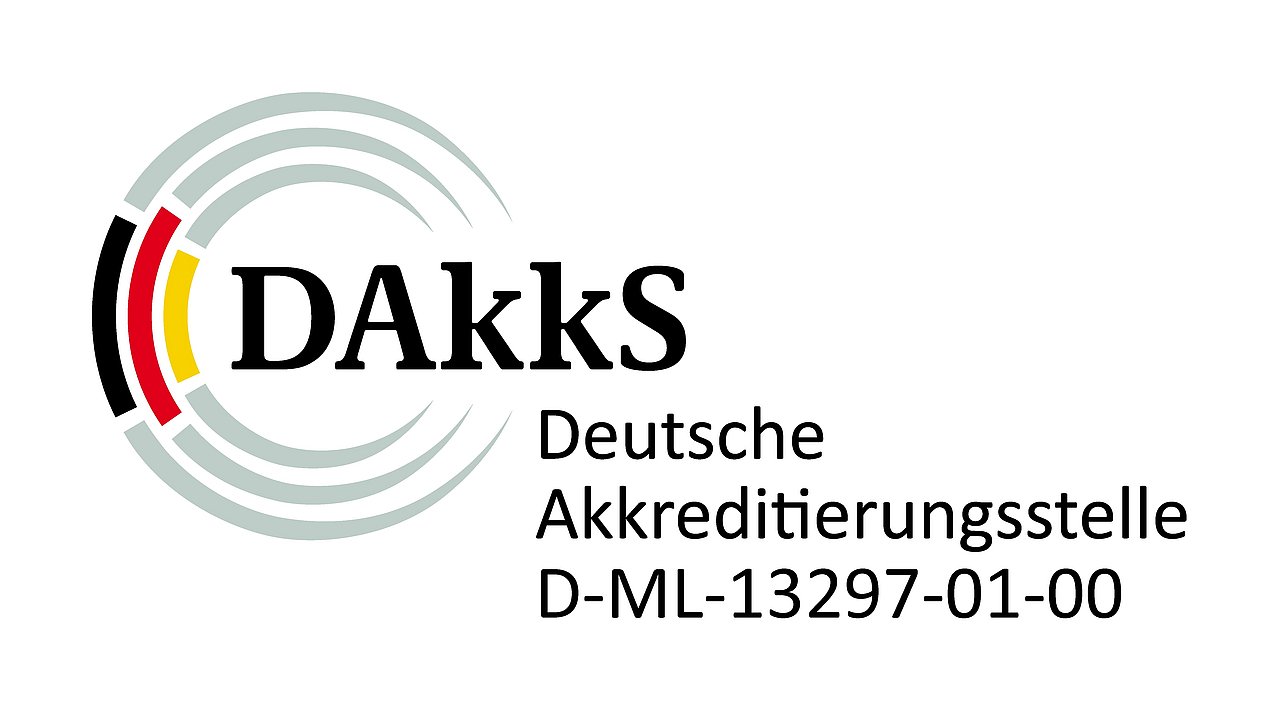Optimization of dendritic cells for cell therapies
Dendritic cells (DC) describe a particular cell subset of the immune system, specialized in the detection of foreign molecules/proteins (antigens) an their presentation to other cell subsets. Simultaneously, DCs are also mediate immune tolerance and the prevention of autoimmune reactions. Due to these key features DCs act as essential regulators of innate and adaptive immune responses, making them valuable candidates for cell therapies.
Within cell therapies, DCs can be implemented for the treatment of cancerous diseases. For this purpose, progenitor cells are collected and differentiated into DCs or DC-like cells from the blood of patients or healthy donors. Subsequently, these cells are exposed to e.g. tumor antigens, prior to the readministration into the patient, in order to elicit and antigen-specific immune response. This process requires 7-9 days and describes a labor intensive protocol.
The aim of this project is to optimize and improve the generation of DCs and DC-like cells for clinical use in an ex vivo model. One goal focuses on the rapid generation of DC-like cells in under 48h, implementing monocytes as progenitor cells. Generated cells are analyzed in terms of phenotype and functionality using flow cytometry, cytokine-release assays and their potential to induce antigen-specific T cell responses. In addition, we aim to evaluate the potential of different blood sources and progenitor cells for the development of novel cell therapeutics.
https://www.karger.com/Article/FullText/512451





